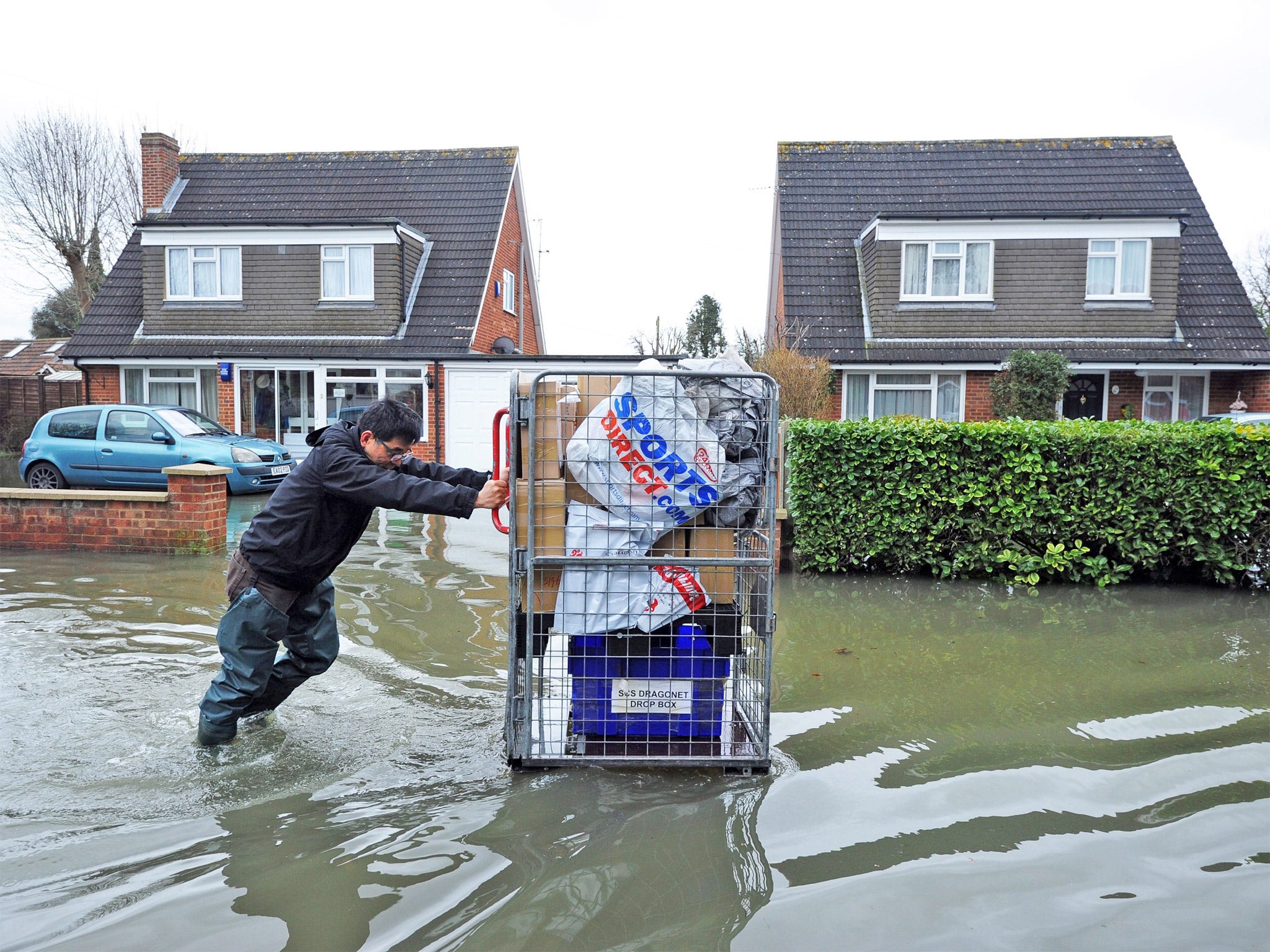UK weather: Contaminated floodwaters could lead to norovirus spike

Your support helps us to tell the story
From reproductive rights to climate change to Big Tech, The Independent is on the ground when the story is developing. Whether it's investigating the financials of Elon Musk's pro-Trump PAC or producing our latest documentary, 'The A Word', which shines a light on the American women fighting for reproductive rights, we know how important it is to parse out the facts from the messaging.
At such a critical moment in US history, we need reporters on the ground. Your donation allows us to keep sending journalists to speak to both sides of the story.
The Independent is trusted by Americans across the entire political spectrum. And unlike many other quality news outlets, we choose not to lock Americans out of our reporting and analysis with paywalls. We believe quality journalism should be available to everyone, paid for by those who can afford it.
Your support makes all the difference.Public health chiefs are braced for a surge in cases of diarrhoea, vomiting and stomach pain caused by bugs in floodwater as sewage spills out of overflowing drains.
One expert predicted “a big spike in diarrhoea” in the coming days but said the outbreak of illness would be “unpleasant but not deadly”.
Floodwater could contain E.coli, salmonella and campylobacter bacteria as animal waste becomes mixed with storm waters, while human sewage could spread the winter vomiting bug norovirus.
People in areas with flooding are being warned to wash their hands regularly, particularly before eating, and to dress open wounds. Once the waters have receded, they have been urged to ensure their homes are thoroughly dried out as bacteria thrives in damp conditions. Tonight Jeremy Hunt, the Health Secretary, attended a meeting of the Whitehall emergency committee Cobra amid warnings that the flooding could spread gastro-intestinal disease.
Dr Ben Neuman, microbiologist from the University of Reading, said he last week tested water around a flooded house in the Somerset Levels. The water was carrying much higher levels of bacteria than normal, Dr Neuman said, describing it as the equivalent of dissolving a couple of teaspoons of horse manure in an office water cooler.
“I think there will be a big spike in diarrhoea, but people may not up end up reporting it to the public health authorities,” he told The Independent. “It will be unpleasant, but not deadly. The water is dirty rather than dangerous.”
Dr Peter Fox, an environmental health consultant, said: “When you get raw sewage flowing into the water, there are a lot of pathogens present arising from people in the community who are infected. At any one time, two or three per cent of the population have got some kind of diarrhoea or gastric infection.”
Water expert Professor Robert Jackson, said: “A variety of micro-organisms is present in wastewater and can give rise to significant microbial contamination and illness. Potential hazards exist from viruses and microbial pathogens including escherichia coli, which are present in the faeces of most humans, mammals and birds.”
Public Health England (PHE) said it was monitoring reports from hospitals and family doctors for any indications of an outbreak of infectious disease. Virginia Murray, head of extreme events and health protection, said that while the experience of summer 2007, in which 55,000 properties were flooded, did not suggest a serious outbreak, authorities nationally and locally needed to remain vigilant.
“Floodwater can be coming from all over the place,” she said. “You wouldn’t ever drink or swim in contaminated water. There are likely to be all sorts of bacteria and pathogens in floodwater and the best advice is not to come into contact with it, if at all possible.
“We are carrying out surveillance at GPs and A&E departments and we’re targeting that, as much as we can, to the local areas where people have seen flooding.”
Safety leaflets have been issued to homes in Surrey, which has seen some of the worst floods.
Experts have also advised people not to use petrol or diesel generators indoors in the event of a power cut due to the risk of carbon monoxide poisoning.
A seven-year-old boy died in flood-hit Chertsey on Saturday and there were reports officers are investigating whether carbon monoxide fumes from a pump being used to clear water from the house were responsible.
Surrey Police said the cause of the death remained unknown and tests were continuing.
Join our commenting forum
Join thought-provoking conversations, follow other Independent readers and see their replies
Comments